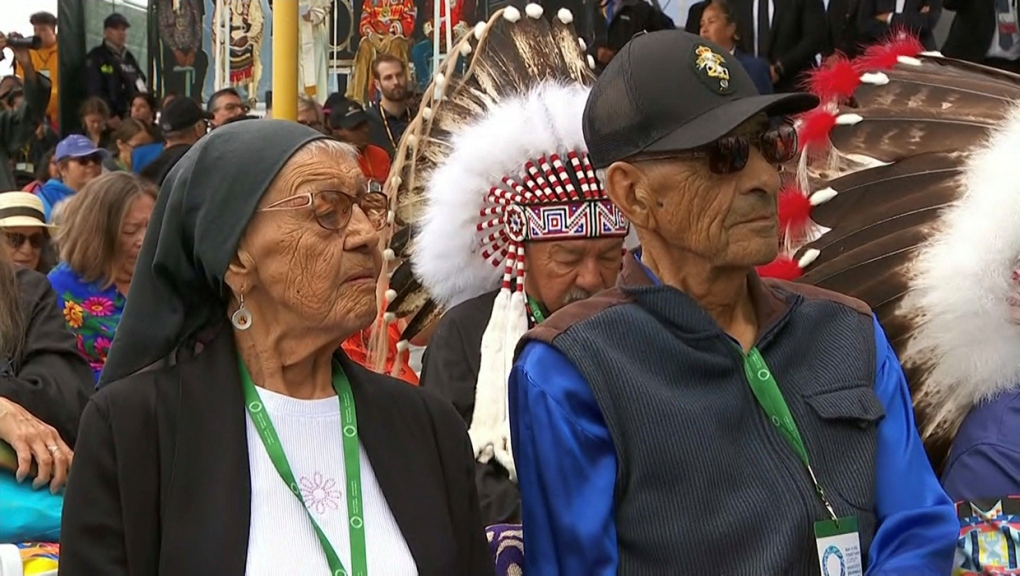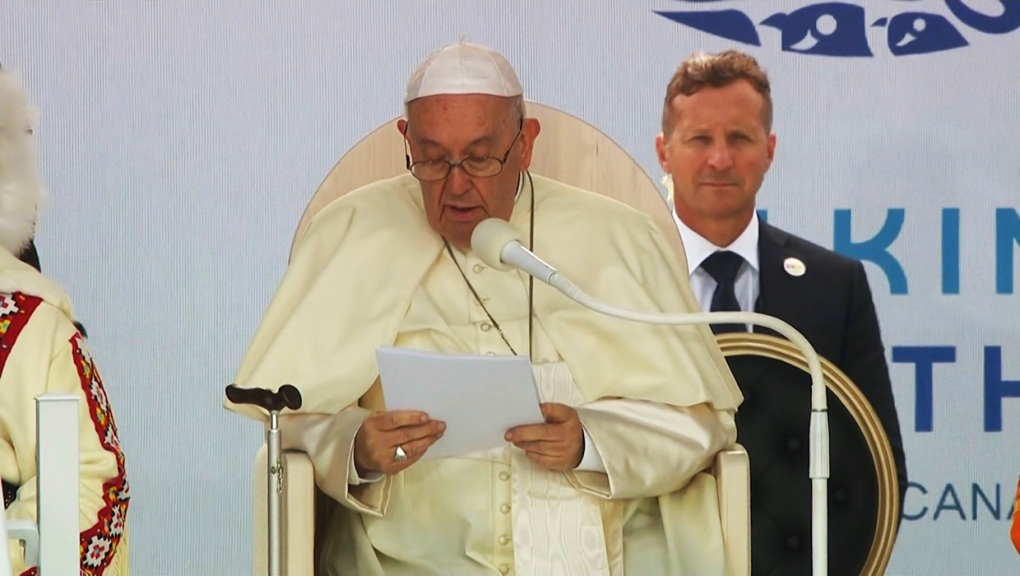Residential school survivor has mixed reaction to Pope’s apology
 Some residential school survivors had mixed feelings about the Pope's apology Monday
Some residential school survivors had mixed feelings about the Pope's apology Monday
Residential school survivor Sheldon Day Chief had mixed reactions to the Pope's apology.
“Today was a reckoning,” Day Chief said. “It was an opportunity for the Catholic Pope to help in the process of healing.”
Pope Francis said he was 'deeply sorry' and asked for forgiveness.
Day Chief attended St. Mary’s Residential School on the Blood Reserve. It was one of more than 130 residential schools operated in Canada between the 1870s and 1996.
While Day Chief felt the apology was a step forward, there were still many unanswered questions.
“What is the next step I should say, because at the end of the day the apology that was given in Rome was the same as the one given today,” Day Chief said.
Day Chief added the apology was broad and didn’t mention what he has been waiting to hear as a survivor.
He said he wants the Pope to denounce and revoke the Doctrine of Discovery as he believes without that Indigenous peoples will continue to be locked into oppression.
Pope Francis apologized for the ways many Christians supported the colonizing mentality of the powers who oppressed Indigenous peoples.
“Without him revoking the doctrine, regards of what we hear from him and that isn't even mentioned in this apology, we are going continue to be locked in that oppression,” Day Chief said.
Day Chief said the Pope’s visit has brought up memories of his time in residential school.
“It was triggering as I know of many of the abuses first-hand, as I witnessed many of the sexual abuses and first-hand experiencing some of the physical abuses and the mental abuses that were put upon myself,” he said.
 Pope Francis apologizing in Alberta for residential schools on July 25, 2022
Pope Francis apologizing in Alberta for residential schools on July 25, 2022
Adam Browning, president of the Lethbridge and Area Metis said in a statement the apology is "an important gesture and one that leads to dialogue, not just the past, but on how we all work together to meaningfully address the current issues facing Indigenous peoples in Canada."
But some in the community said the legacy of residential schools will live on for years to come.
“For myself, as an inter-generational survivor of the Indigenous residential school system, it is something that affects my life every day," said Tiffany Prete, a sociology professor at the University of Lethbridge. "It is something that's going to affect my kids, (and) my grandchildren, so it's nice to finally have had that apology from the Pope."
Prete said the apology was needed, but hopes future plans and process includes Indigenous representation.
“I am hopeful that something good will come from the apology, that it will be more than just words, that there will be a plan formalized and is able to help Indigenous peoples and the Roman Catholic Church walk the path of reconciliation,” Prete said.
For survivors of residential schools and their families, there is a crisis line available 24 hours a day by calling 1-866-925-4419.
CTVNews.ca Top Stories

BREAKING Emergency crews responding to avalanche in Whistler, B.C., area
Paramedics and search crews have been dispatched to the scene of an avalanche that struck Monday in the Whistler, B.C., area.
Quebec fugitive killed in Mexican resort town, RCMP say
RCMP are confirming that a fugitive, Mathieu Belanger, wanted by Quebec provincial police has died in Mexico, in what local media are calling a murder.
Bill Clinton hospitalized with a fever but in good spirits, spokesperson says
Former President Bill Clinton was admitted Monday to Georgetown University Medical Center in Washington after developing a fever.
Trump again calls to buy Greenland after eyeing Canada and the Panama Canal
First it was Canada, then the Panama Canal. Now, Donald Trump again wants Greenland. The president-elect is renewing unsuccessful calls he made during his first term for the U.S. to buy Greenland from Denmark, adding to the list of allied countries with which he's picking fights even before taking office.
Pioneering Métis human rights advocate Muriel Stanley Venne dies at 87
Muriel Stanley Venne, a trail-blazing Métis woman known for her Indigenous rights advocacy, has died at 87.
King Charles ends royal warrants for Ben & Jerry's owner Unilever and Cadbury chocolatiers
King Charles III has ended royal warrants for Cadbury and Unilever, which owns brands including Marmite and Ben & Jerry’s, in a blow to the household names.
Man faces murder charges in death of woman who was lit on fire in New York City subway
A man is facing murder charges in New York City for allegedly setting a woman on fire inside a subway train and then watching her die after she was engulfed in flames, police said Monday.
Canada regulator sues Rogers for alleged misleading claims about data offering
Canada's antitrust regulator said on Monday it was suing Rogers Communications Inc, for allegedly misleading consumers about offering unlimited data under some phone plans.
Multiple OnlyFans accounts featured suspected child sex abuse, investigator reports
An experienced child exploitation investigator told Reuters he reported 26 accounts on the popular adults-only website OnlyFans to authorities, saying they appeared to contain sexual content featuring underage teen girls.
































